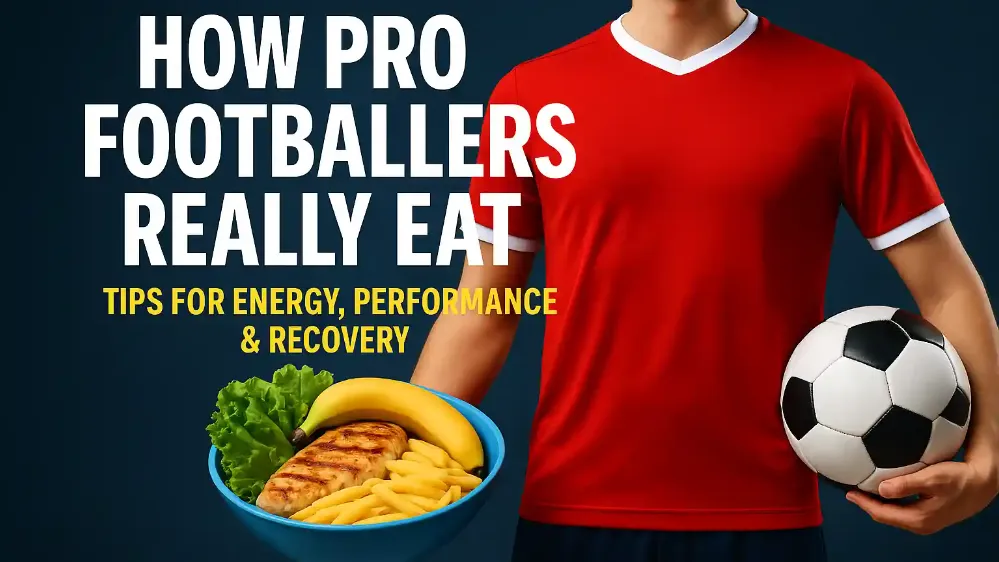
The right food at the right time can be the difference between finishing strong… or cramping up mid-sprint. It affects everything—how fast you recover, how focused you stay in the 90th minute, even how well you sleep after a night game. This isn’t about eating clean for Instagram. It’s about performance you can feel.
Your body constantly asks for support— rebuilding muscle, topping up energy, or calming inflammation after a rough tackle. Miss the timing, skip a meal, or load the wrong stuff too close to kickoff? You’ll know. And so will your hamstrings.
Let’s be honest—eating for performance sounds simple. Carbs for energy, protein for muscle, maybe a banana before the match, right? But here’s where it gets tricky: pros don’t just train hard; they train smart, and what they put on their plate is part of the strategy. Food isn’t just fuel—it’s timing, precision, and sometimes, straight-up damage control.
Matches go longer than 90 minutes. There’s warm-up, extra time, recovery, travel, back-to-back fixtures. And in between? They need to stay sharp, fast, injury-free, and mentally locked in. That doesn’t happen on guesswork. It happens with a plan—one that adapts to the game, not just the clock.
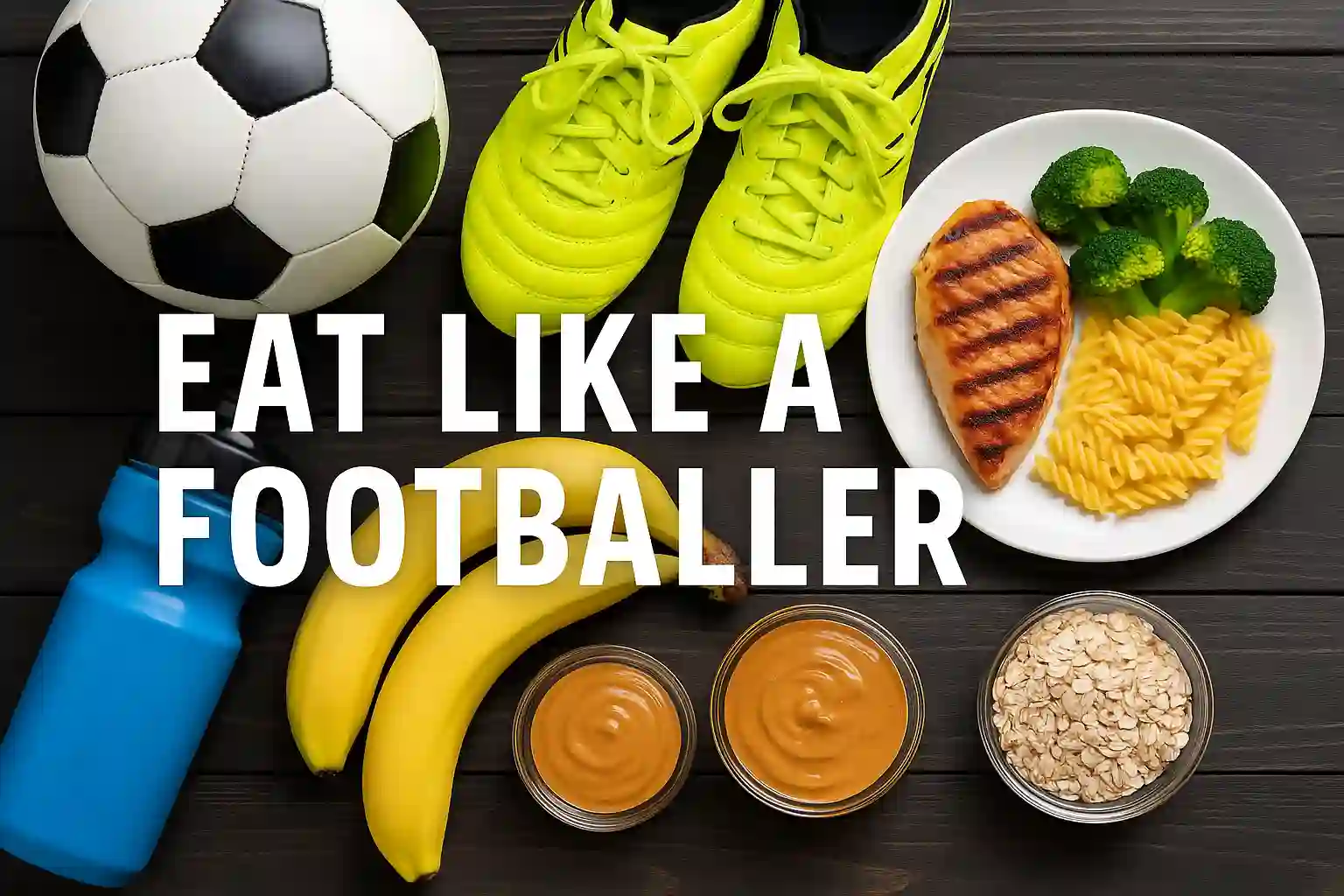
Carbohydrates are king for high-intensity sport. Players can burn through glycogen stores fast—think 60–90 minutes of repeated sprints, accelerations, decelerations. Without carbs, the brain fog creeps in, decision-making slows, and your hamstrings start whispering, “Not today, pal.”
How much?
For Weekend Players:
Which carbs?
You know what? Even the “white carbs are bad” crowd hush up on match day. Ease of digestion matters more than rustic charm when the whistle’s about to go.
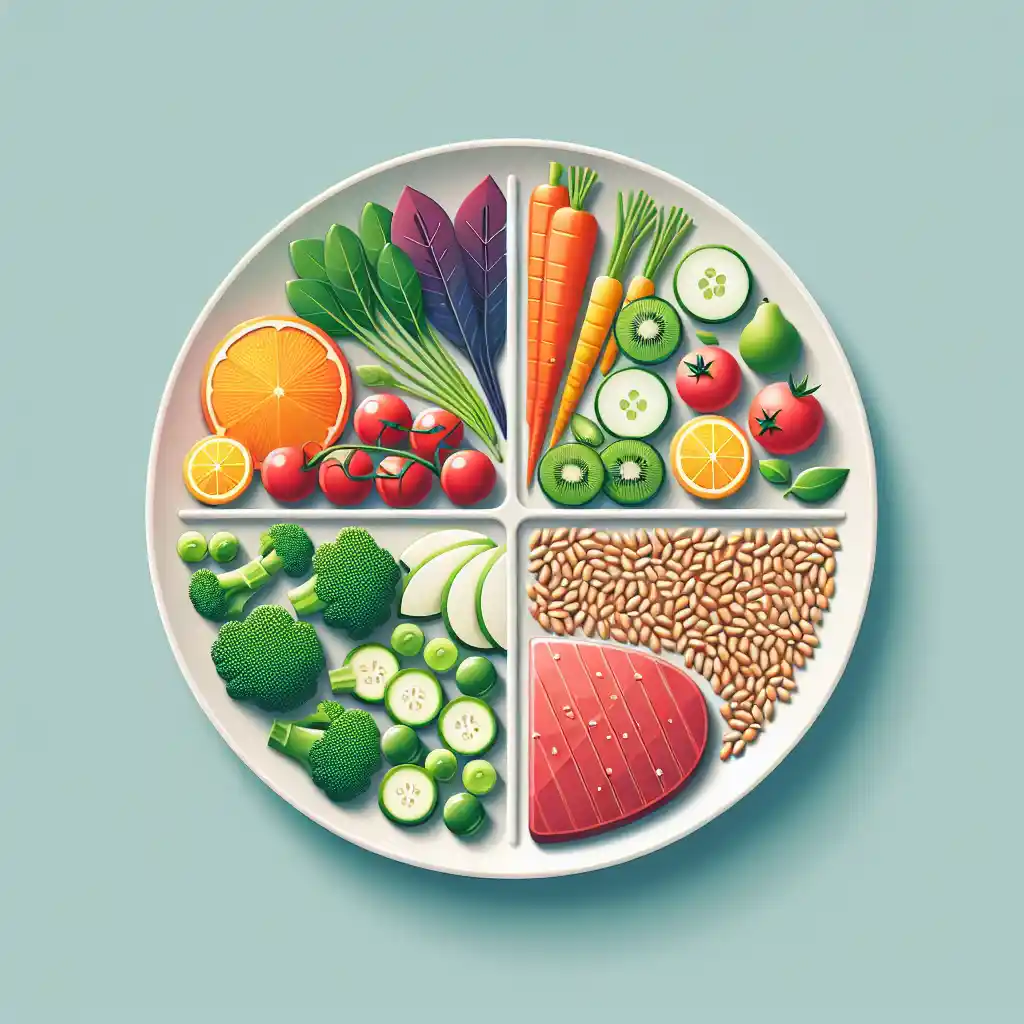
Protein repairs muscle, but also helps immune function and basic upkeep. Footballers aren’t bodybuilders, yet they still need steady protein spread through the day.
Best timing points:
And yes, plant proteins can work, just mix sources (lentils + soy + whole grains) to cover all amino acids and bump the total a little.
Fat isn’t the villain. It helps with hormone production, joint health, and long-haul energy. But high-fat meals right before a match? Risky—sluggish digestion, heaviness.
Dehydration of even 2% body weight can chip away at sprint speed and concentration. Yet some players barely sip until half-time. Don’t be that player.
Simple checks:
Electrolytes matter: Sweat carries sodium. Plain water might not cut it if you’re a salty sweater (white marks on your shirt? That’s you). Sports drinks, electrolyte tabs, or a pinch of salt in diluted juice can help.
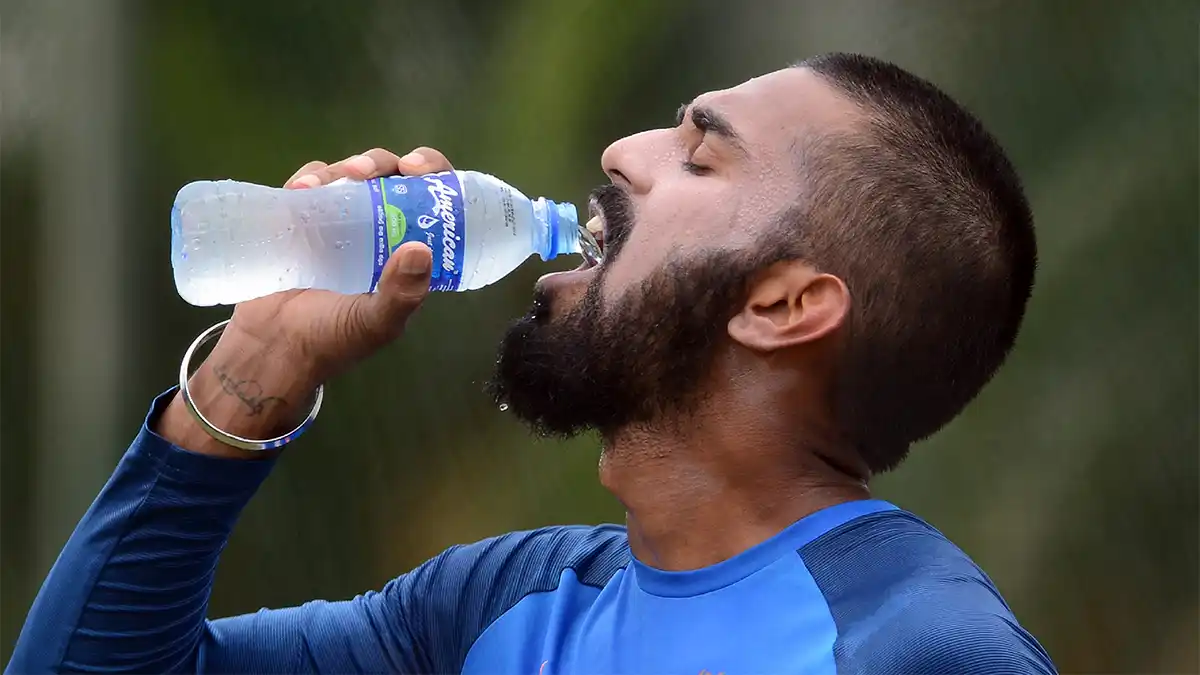
Here’s a practical rhythm many pros (and smart amateurs) use. Adjust portions to your size and level.
24 hours before kick-off
Pre-match meal (3–4 hours before)
Snack (60–90 minutes out)
Half-time
Post-match (0–2 hours)
Later that evening
Plenty of noise here. Let’s keep it grounded.
Commonly used (with solid evidence):
Stuff to be cautious about:
Football is global. Diets should respect taste, culture, and what the stomach agrees with.
Brazilian player’s day: Tapioca crepes with cheese for breakfast, beans and rice at lunch, açaí with granola as a snack
Italian midfielder: Morning espresso, bowl of risotto before a late kick-off, grilled fish and roasted potatoes after
Nigerian winger: Jollof rice for glycogen loading, plantain for quick carbs, egusi soup later for recovery
Japanese full-back: Big bowl of udon noodles pre-game, onigiri (rice balls) as a portable snack, miso soup post-match to hydrate and add salt
See the pattern? Carbs featured, proteins supported, fats present but not dominant pre-game. The wrapping paper changes; the gift inside is similar.
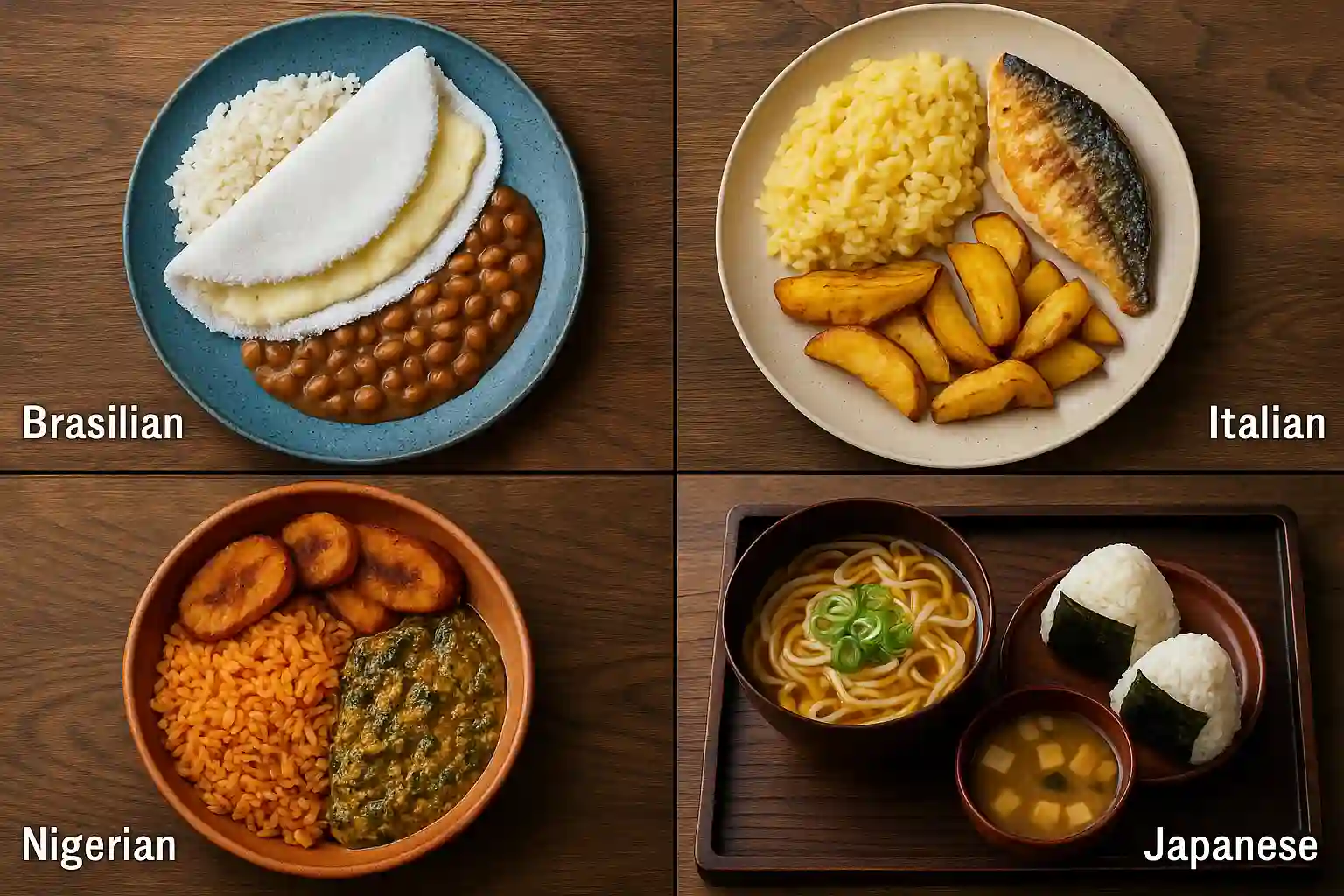
Adjust quantities to your body weight.
7:30 – Breakfast
9:30 – Pre-session snack
11:00–12:30 – Training
12:45 – Immediate recovery
14:00 – Lunch
17:00 – Snack
20:00 – Dinner
Before bed (optional)
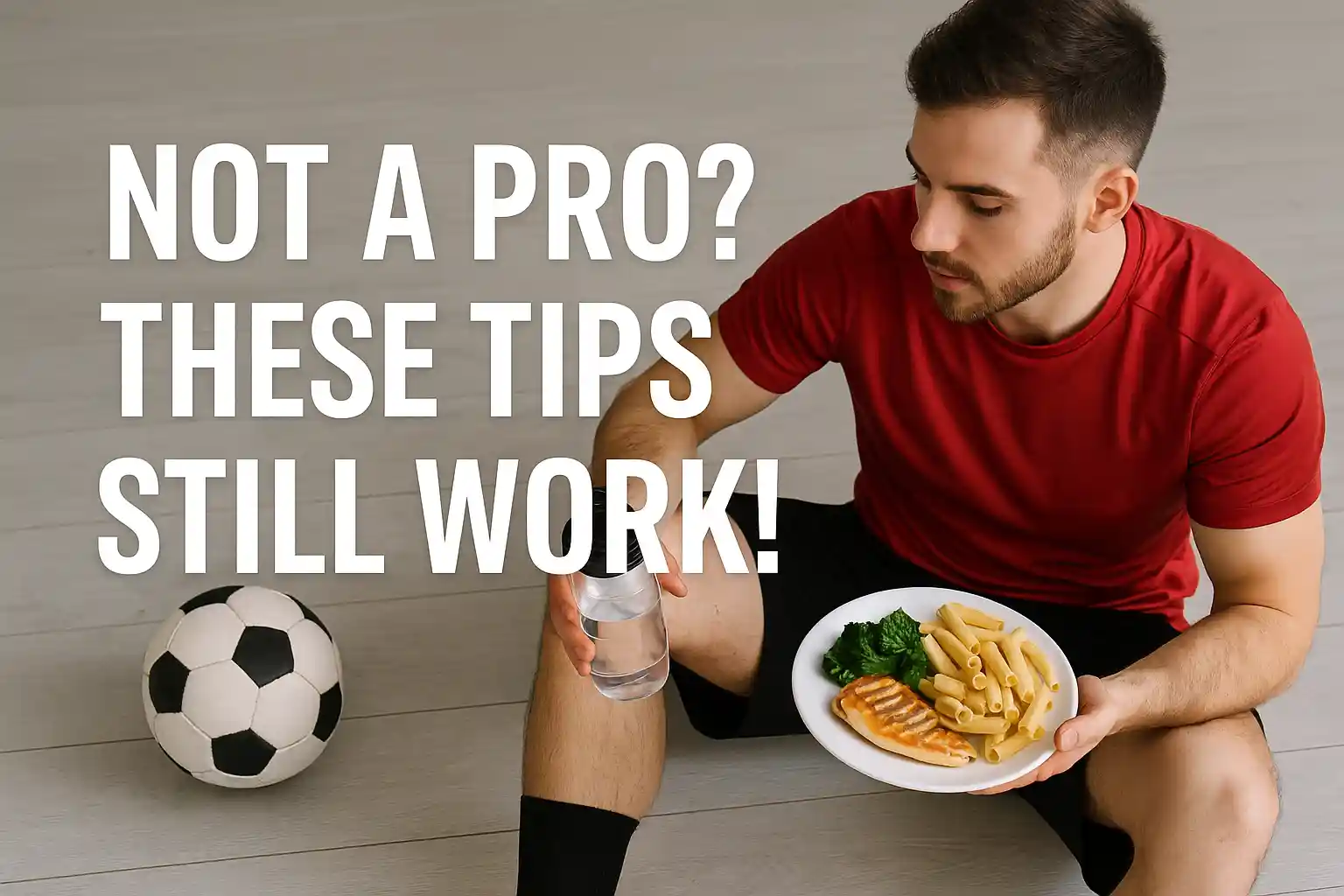
Totally. You might not have club chefs or blood tests every month, but the principles scale. You train hard? You sweat? You want to feel sharp late in a game of five-a-side? Same basic framework:
Even if your “match” is a Sunday league game and a pint after, a decent pre-match meal still helps you enjoy the pint more because you won’t be wrecked.
1. Check your calendar: hard day or light day? Adjust carbs up or down.
2. Plan your pre-game meal: 3–4 hours out, low fat, low fiber, decent carbs, some protein.
3. Snack smart: small carb hit 60–90 min before.
4. Hydrate on purpose: start the day with fluids, weigh yourself if you’re serious, sip during play.
5. Hit recovery fast: carbs + protein within two hours—shake, chocolate milk, or a full plate.
6. Sleep fed, not stuffed: a small protein-rich snack before bed helps repair without bloating you.
You don’t need a chef to eat like a pro. You just need a plan, a little consistency, and the willingness to eat that extra bowl of rice the night before. Honestly, your legs will thank you in stoppage time.